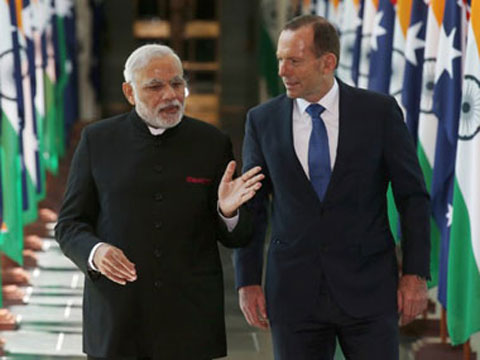
Prime Minister Tony Abbott and his Indian counterpart Narendra Modi inked a long-awaited pact for Australia to sell uranium to India in September last year, in a bid to ease the country's power crisis and help provide clean energy to its population.
Australia is the world's third-biggest uranium producer and the parliamentary report said the domestic sector would enjoy a huge boost if the agreement is ratified, with the industry and the number of people employed in it doubling in size.
Export revenue would also increase by an estimated Aus$1.75 billion (US$1.22 billion), the report said.
But the treaties committee, which has a majority of members from the governing Liberal-National coalition, added that certain measures should be implemented to strengthen safeguards and nuclear non-proliferation.
The recommendations include Canberra helping India to "make genuine disarmament advances, such as signing the Nuclear Test Ban Treaty".
It also noted that recent checks by renowned bodies indicated that nuclear safety standards in India were "not as high as they should be".
"Because of this, the committee has recommended that Australian uranium not be sold to India until the Indian government has established a nuclear regulator with statutory independence and safety inspections of Indian nuclear facilities that meet best practice standards," the committee said.
It said other concerns — such as the tracking and accounting of nuclear material so it would not be diverted for military use — had been addressed by the government's safeguards agency ANSO, which monitors the proliferation of weapons of mass destruction.
Canberra had long refused to export uranium to India as it has not signed the Nuclear Non-Proliferation Treaty. It reversed its stand in 2012 as it sought to improve ties with the growing nation.
India is heavily dependent on coal and has been struggling to meet rising energy demand as the economy booms and the middle class expands.

1732569774-0/Baymax-(2)1732569774-0-165x106.webp)







1732105641-0/BeFunky-collage-(78)1732105641-0-270x192.webp)







COMMENTS (5)
Comments are moderated and generally will be posted if they are on-topic and not abusive.
For more information, please see our Comments FAQ